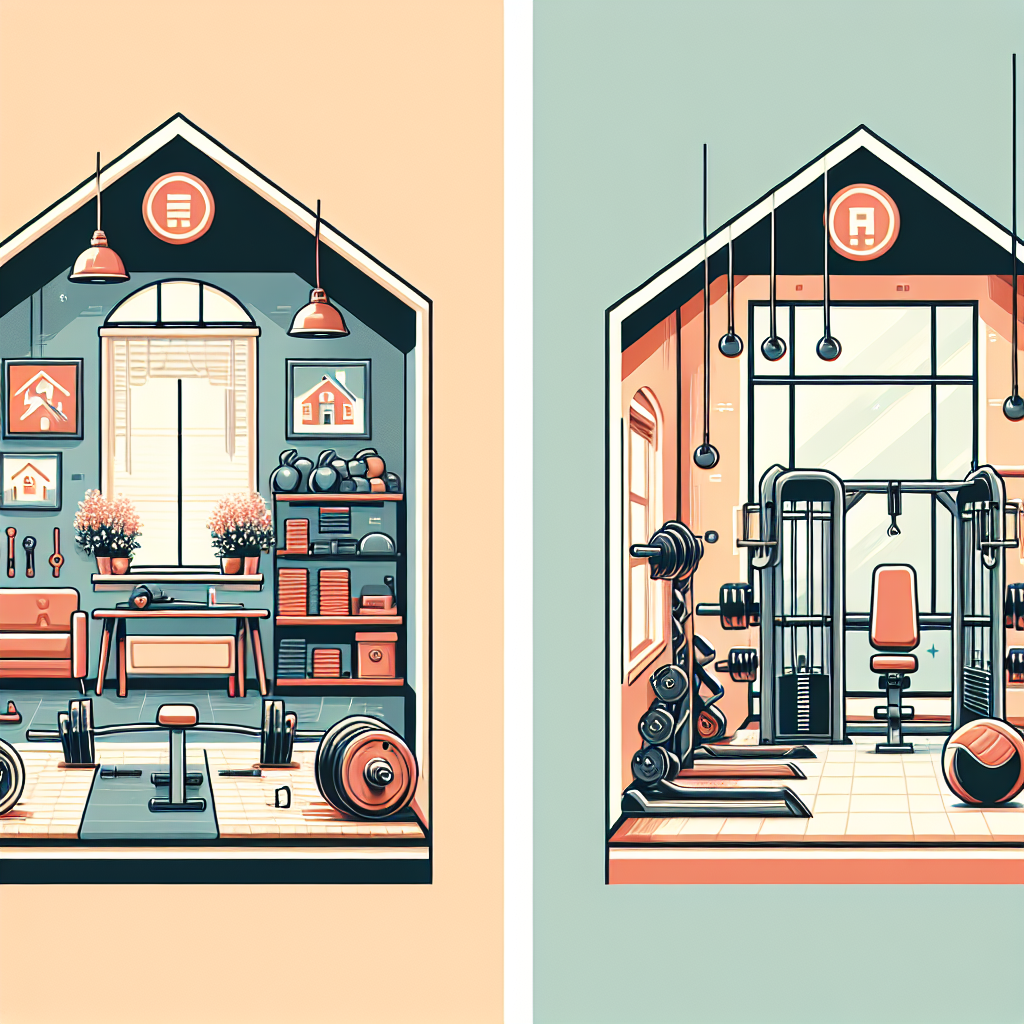
Home Gym vs. Commercial Gyms: Which Is Best?
Share
Home Gym vs. Commercial Gyms: Which Is Best?
Choosing where to work out is a significant decision for anyone committed to their fitness journey. The debate of home gym vs commercial gym has intensified, especially as more people consider the benefits of working out from the comfort of their own homes. Both options come with their unique advantages and potential drawbacks, and the best choice ultimately depends on your lifestyle, budget, goals, and preferences.
Benefits of a Home Gym
For many fitness enthusiasts, building a home gym is the ultimate investment in health and convenience. Here’s why a home gym could be the right choice for you:
- Convenience and Accessibility: With a home gym, you have 24/7 access to your workout equipment, allowing you to train whenever it suits your schedule.
- No Commute: Save precious time by eliminating the need to travel to and from a gym. This is especially beneficial for those with busy lives.
- Privacy: Enjoy a distraction-free workout environment, free from crowded spaces or waiting for equipment.
- Customizable: Tailor your home gym to fit your exact needs, from the type of equipment to the atmosphere and music.
- Long-term Savings: Although setting up a home gym requires upfront investment, it can save money compared to ongoing gym memberships in the long run.
Drawbacks of a Home Gym
- Initial Cost: High-quality gym equipment can be expensive. However, investing in versatile tools, such as a multifunctional station, can make the cost worthwhile.
- Space Requirements: Not everyone has sufficient space at home for a full gym setup.
- Lack of Social Interaction: If you thrive on a community vibe, a home gym might feel isolating at times.
Benefits of Commercial Gyms
Commercial gyms are designed to offer a comprehensive fitness experience, and here’s why they remain a popular choice:
- Variety of Equipment: Access to a wide range of machines and free weights, often more than most people can fit or afford at home.
- Professional Guidance: Many commercial gyms provide personal trainers and guidance from fitness professionals.
- Group Classes: Enjoy motivating group workout classes, from spin to yoga to Zumba.
- Social Environment: Meet like-minded individuals and potentially make new friends or fitness buddies.
Drawbacks of Commercial Gyms
- Monthly Fees: Ongoing membership costs can add up, especially at premium gyms.
- Travel Time: Commuting to and from the gym takes extra time and effort.
- Potential Crowding: Peak hours can lead to long waits for equipment and less personal space.
- Limited Personalization: Commercial gyms may not allow for specialized equipment or individualized training environments.
Cost Comparison: Home Gym vs Commercial Gym
One of the most frequent questions when comparing a home gym vs commercial gym is about cost. Let’s break it down:
- Home Gym: Initial setup costs may range from a few hundred to several thousand dollars, depending on the quality and amount of equipment. However, this is a one-time investment, and you won’t have ongoing monthly fees. Over time, a home gym can become a cost-effective option.
- Commercial Gym: Membership fees typically range from $30 to $100 or more per month, depending on location and amenities. These recurring costs add up, and additional fees may apply for classes, training, or facility upgrades.
For example, a two-year membership at $50 per month totals $1,200. For many people, that investment could cover the cost of a substantial home setup.
Space and Equipment Needs
Your training goals will dictate your equipment choices and space requirements:
- List your primary fitness goals – strength, cardio, flexibility, etc.
- Choose equipment that can deliver versatility, like adjustable dumbbells, resistance bands, and all-in-one workout stations.
- Assess your available space for safety and functionality. Even small areas can house clever multifunctional equipment.
Who Should Choose a Home Gym?
A home gym is ideal if you:
- Prefer working out alone or dislike crowded environments
- Have a busy schedule and value flexibility
- Plan to stick with fitness for the long haul
- Are willing to invest upfront for long-term convenience
Who Benefits Most from a Commercial Gym?
Commercial gyms are a great fit for those who:
- Love group fitness classes or need external motivation
- Want access to the latest equipment or specialized machines
- Appreciate social interaction as part of their fitness routine
- Are not ready or able to invest in home equipment or space
Making Your Home Gym Work: The Versatile Solution
If you’re leaning toward a home gym but concerned about versatility and space, investing in a single, multi-use machine can be a game changer. The Multifunction Home Gym Weight Training Workout Station White is an ideal solution. This all-in-one station provides a comprehensive workout experience that targets multiple muscle groups without needing an entire room of equipment. With a sleek design and sturdy construction, it helps you maximize results, save space, and enjoy the benefits of a professional gym setting in your home.
Conclusion: Home Gym vs Commercial Gym – What’s Right for You?
There is no universal answer to the home gym vs commercial gym debate. The best choice depends on your unique needs, resources, and motivation. A commercial gym offers social interaction and advanced equipment, whereas a home gym provides unbeatable convenience and could save money over time. If you value privacy, flexibility, and a tailor-made fitness experience, investing in a quality equipment like the Multifunction Home Gym Weight Training Workout Station White can give you the ultimate home gym advantage. Choose what fits your lifestyle, and enjoy your journey to better health.
Meta description: Should you work out at home or in a commercial gym? Compare costs, convenience, and results in the ultimate home gym vs commercial gym debate.
